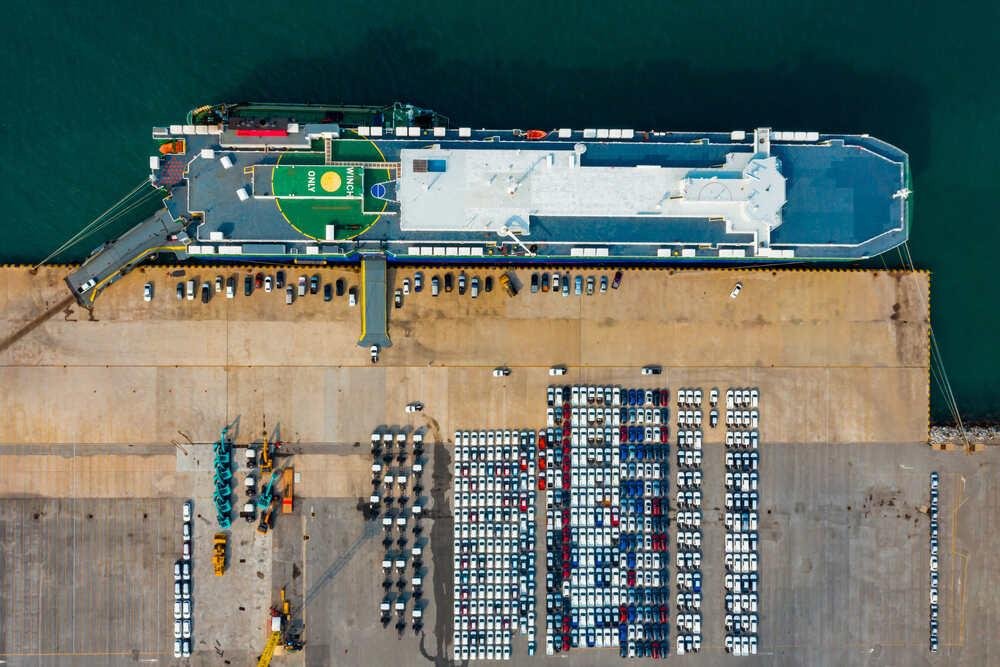
Shipping a car to France typically costs between $1150 to $2195. Additionally, there's an 11% duty on imports, plus a VAT of 20% of the vehicle's value. Local charges at the port in France also apply.
Shipping a car internationally, such as to France, involves several steps and considerations. The process begins with the customer contacting an auto transport company and providing details about the vehicle, such as make, model, year of manufacture, and final destination. This information is crucial in determining the type of carrier needed for transportation: open or enclosed.
The Role of Distance in Car Shipping Costs
The cost of shipping a vehicle is significantly influenced by the distance it takes. This is primarily due to the fuel consumption in moving the car from one location to another. For instance, transporting a car across several states will naturally require more gas than moving it within a single city or state. Thus, longer distances translate into higher costs because of the increased expenditure on fuel.

Another factor that comes into play concerning distance is time. The farther away your destination, the more time it will take for your car to arrive there. This means that transporters have their trucks and drivers engaged for longer periods, which adds to labor costs and other operational expenses such as meals and accommodation for drivers during long hauls.
Furthermore, toll fees are also important when determining shipping costs based on distance. These charges can increase quickly, especially if crossing multiple states or provinces with different toll rates. Therefore, shorter routes might seem cheaper due to less fuel. They may become pricier if they involve passing through numerous toll booths compared to slightly longer routes without any tolls.
Impact of Vehicle Size on Shipping Costs
The size of your vehicle can significantly influence the cost of shipping. Larger vehicles such as SUVs, trucks, and vans usually require more space on a carrier than standard-sized cars. This increased need for space often results in higher shipping costs due to the reduced number of vehicles that can be transported simultaneously. Consequently, transport companies have to charge more per larger vehicle to compensate for the potential loss of being unable to fit as many cars on their carriers.
Moreover, weight is another factor that contributes to shipping costs related to vehicle size. Heavier vehicles increase fuel consumption during transportation, which directly affects pricing. Shipping companies must account for this additional expense when calculating their rates. Therefore, it's common for heavier vehicles like pickup trucks or large SUVs to incur higher shipping fees compared with lighter ones such as sedans or compact cars.
Additionally, some oversized vehicles may require special accommodations or equipment for safe and proper handling during transit. These unique requirements could add additional charges to your final bill from car shipping companies since they entail extra work and resources beyond what's typically involved in transporting standard-sized automobiles. It’s also worth noting that these factors might vary depending on different service providers' policies and current market conditions affecting fuel prices, among other things.

Frequently Asked Questions
The size of the vehicle significantly impacts the cost of shipping. Larger vehicles take up more space on the transport carrier and may require special accommodations, increasing the shipping cost.
Yes, the type of vehicle can affect the shipping cost. For example, shipping a compact car may be less costly than an SUV or a pickup truck because of their size differences.
Yes, the distance to be covered for vehicle shipping is crucial in determining the cost. Greater distances generally mean higher shipping costs, irrespective of the vehicle size.
Yes, the process of car shipping may vary according to the size and type of the car. Larger, oversized vehicles may require different shipping methods than standard-sized vehicles, which can impact the overall process.
While the vehicle size significantly influences the cost, you can reduce it by choosing an open carrier instead of an enclosed one or being flexible with your shipping dates. However, discussing with your shipping company to understand all available options is always recommended.






 Share on Facebook
Share on Facebook Share on LinkedIn
Share on LinkedIn Share on Twitter
Share on Twitter




 Google
Google  Instagram
Instagram  Trustpilot
Trustpilot 



